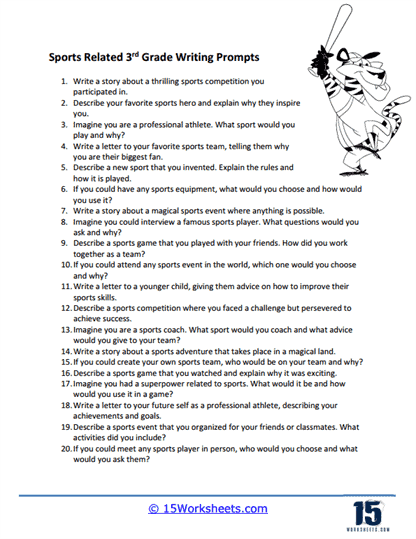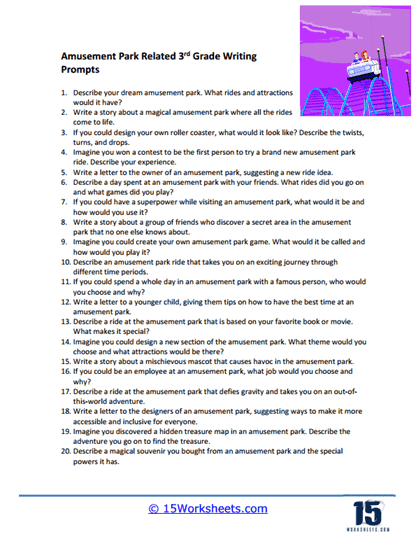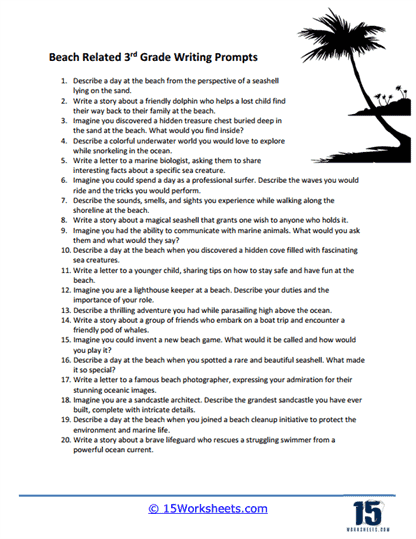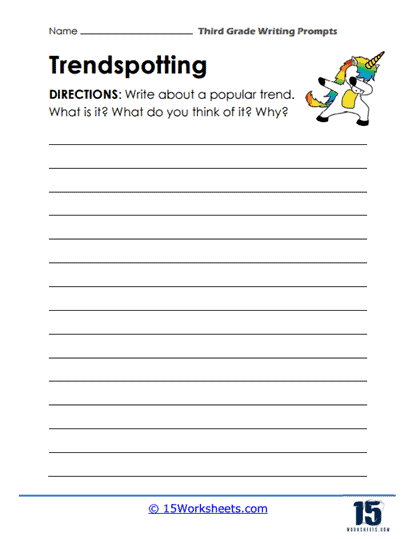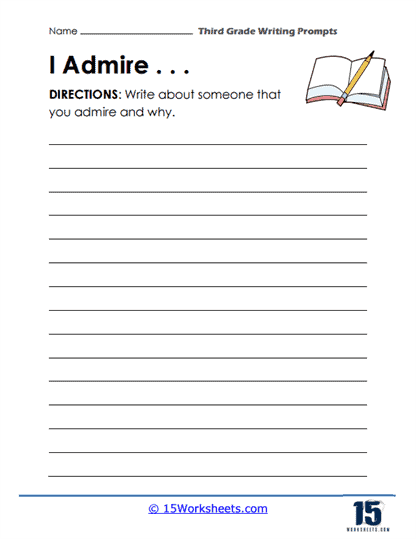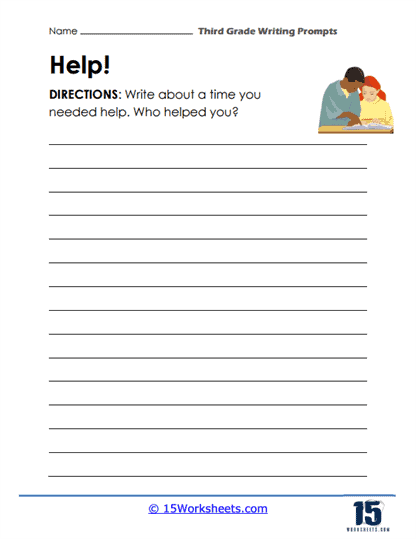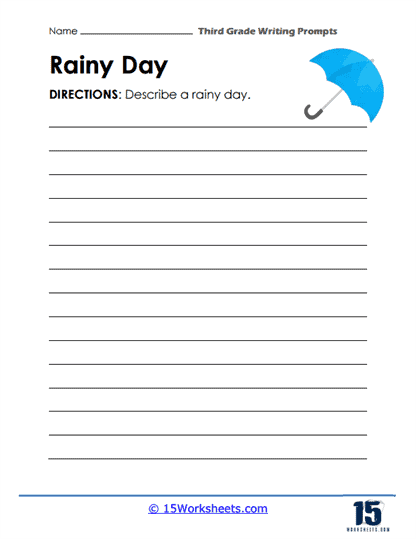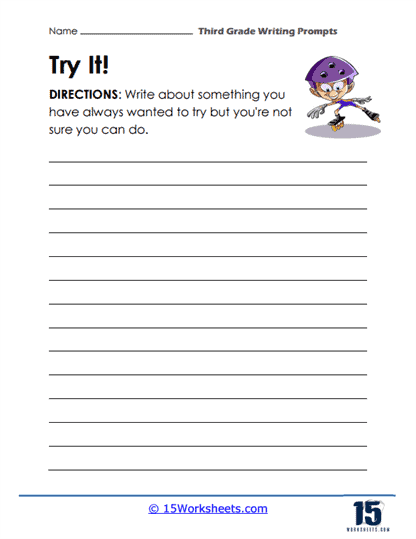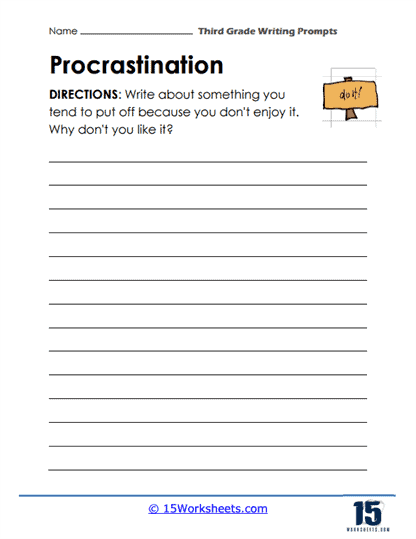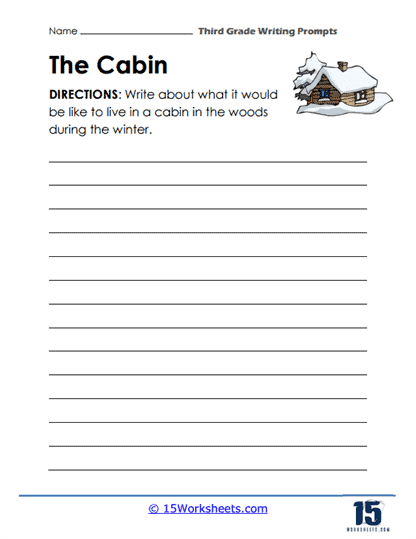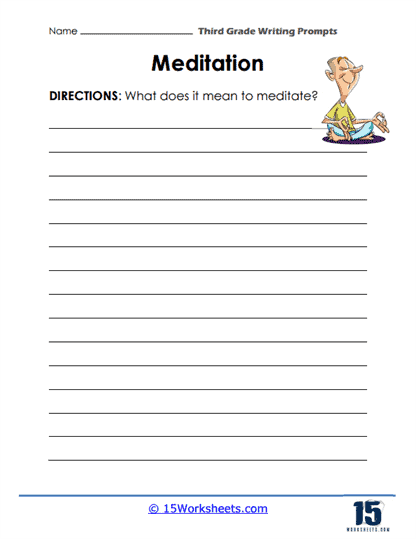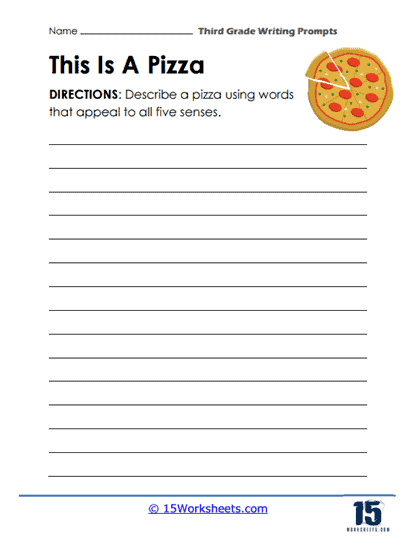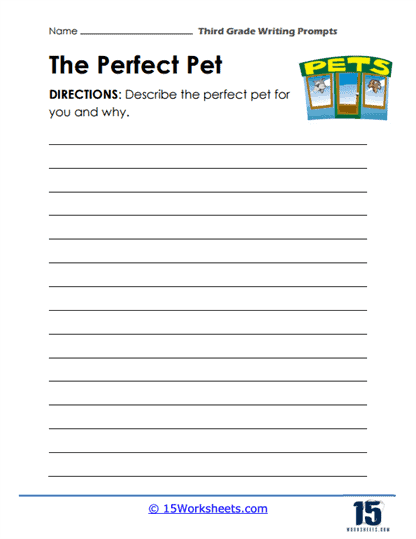3rd Grade Worksheets
All About These 15 Worksheets
They’re like little creative missions or adventures for students to embark on using their imagination and writing skills. They provide ideas or scenarios, called prompts, for children to write about.
You know when you play video games and the game gives you a new mission to complete? It might say something like, “Find the hidden treasure in the lost kingdom,” and then you have to go explore and figure out how to complete the mission. Well, writing prompts are a bit like that, but for your writing skills. A writing prompt might say something like, “Imagine you could travel anywhere in the world. Where would you go and why?” And then, it’s your job to write a story or essay about that prompt.
The prompts are designed to be just challenging enough for their skill level, encouraging them to use descriptive words, organize their thoughts, express their feelings, and maybe even explore different types of writing styles like narrative, descriptive, expository, or persuasive.
These 3rd grade prompts are designed to spark creativity, critical thinking, and writing skills development. Teachers can provide these worksheets to students as independent writing activities or as prompts for classroom discussions and group assignments.
What Skills Should Student Cover in the 3rd Grade Curriculum?
Sentence Structure and Grammar
- Write complete sentences with a subject and a predicate.
Use capital letters at the beginning of sentences and for proper nouns. - Use end punctuation marks (periods, question marks, exclamation points) correctly.
- Demonstrate an understanding of basic parts of speech (nouns, verbs, adjectives).
- Use correct verb tenses (present, past, future) in writing.
Spelling and Vocabulary
- Spell frequently used words correctly.
- Use grade-appropriate vocabulary words in writing.
- Utilize strategies such as sounding out words and using word patterns to spell unfamiliar words.
- Understand and use homophones correctly (e.g., their/there/they’re, to/too/two).
Paragraph Writing
- Organize writing into paragraphs with a clear topic sentence and supporting details.
- Use transitional words and phrases (e.g., first, next, finally) to connect ideas within paragraphs.
- Write a concluding sentence that summarizes the main idea.
Narrative Writing
- Develop a clear beginning, middle, and end in narrative writing.
- Use descriptive language to create a picture in the reader’s mind.
- Include details to support the plot, such as characters, setting, and events.
- Use dialogue appropriately, with quotation marks and proper punctuation.
Informational Writing
- Write informative texts that introduce a topic and provide facts or details about it.
- Organize information logically with headings and subheadings.
- Use reliable sources and cite them appropriately (e.g., books, websites).
- Include diagrams, illustrations, or other visual aids to enhance understanding.
Opinion Writing
- Express opinions and support them with reasons and evidence.
- Use persuasive language to convince the reader of a particular point of view.
- Organize writing with an introduction, clear opinion statement, supporting paragraphs, and a conclusion.
Editing and Revising
- Revise writing for clarity, coherence, and organization.
- Edit for correct spelling, grammar, punctuation, and capitalization.
- Use resources like dictionaries and grammar references to check spelling and grammar.
Handwriting
- Write legibly in cursive or manuscript (print) handwriting.
- Maintain consistent letter formation and size.
- Demonstrate proper pencil grip and posture.

